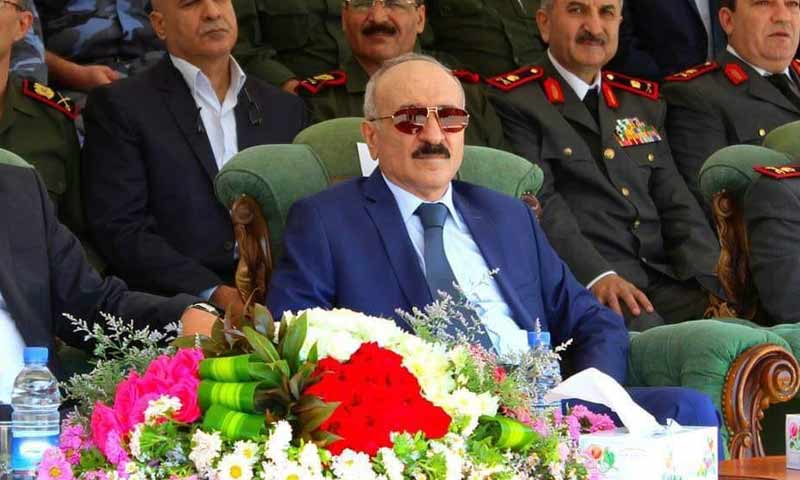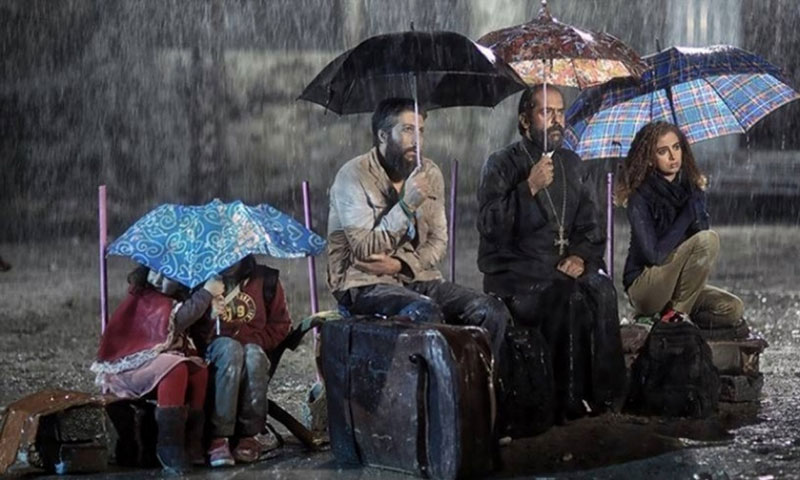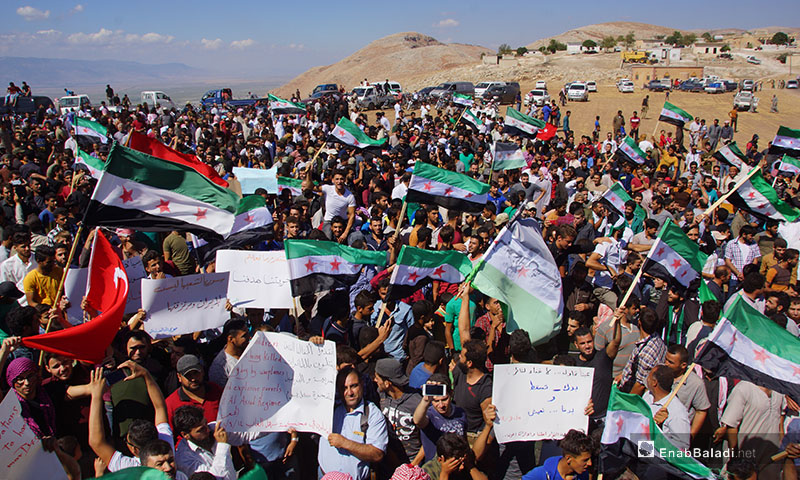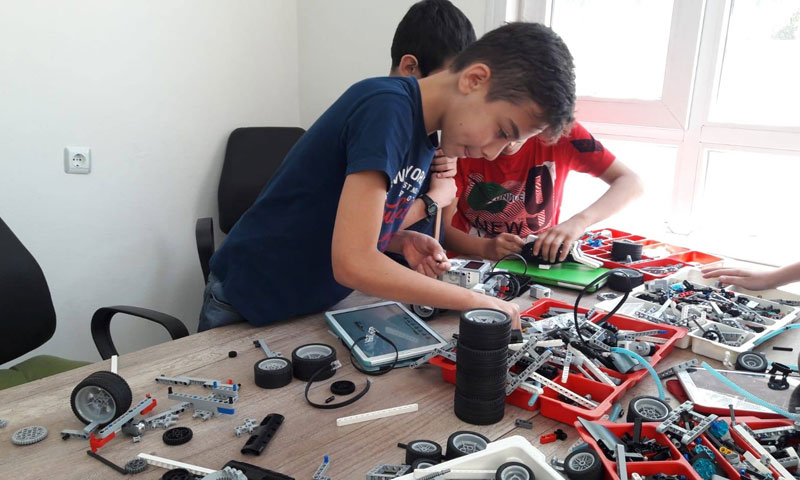Prisoner of my “ID”
Enab Baladi Issue # 95 – Sun, Dec. 15, 2013
“Stop please ladies, open your handbags and show me your IDs”, said the officer at Aljamark checkpoint in Damascus City Centre to the groups of pedestrians gathering at the Aljamarek entrance and then took a quick glance at their IDs; most of them are university students who chose walking to save time by avoiding being stuck in rush hour traffic. After this routine search, pedestrians are allowed to continue their way; however, it is not that simple for all of them.
Azhar, a university student, passed through that checkpoint once; and never did again. “After the officer saw my ID, he searched through my bag thoroughly, searching all zippers and side pockets for anything to incriminate me, only because I was born in Daraya”, Azhar says.
It was only a few months after the outbreak of the revolution and the widespread participation in revolutionary activities in the city of Daraya when Azhar left the city along with her family in order to “avoid troubles”. Azhar believes that both sides are to be blamed; the regime and the “reckless” people who started the revolution without enough organization to efficiently control and lead the revolution, especially among armed groups.
The family’s attitude towards the revolution did not save them its consequences; Azhar’s brother was severely beaten by regime forces when a demonstration was held in their neighbourhood near their house, whereas one of her cousins spent a few weeks in regime detentions as he was one of many who were arrested during an arbitrary arrest campaign in the city.
Later, though Azhar’s family left their hometown, trouble did not leave them. Azhar says their new neighbours where they have moved are so intense and caution in dealing with her family; whereas “we give a wide berth to moving around because of checkpoints”. Passing through Aljamarek checkpoint was not the only incident when one of Azhar’s family members were subject to tightened measures. Her brother is almost always asked to wait until his ID is checked since his hometown gives a hint of being an opposition; thus he avoids moving around in fear of being arrested.
Shortly after Daraya Massacre, as Azhar was completing her university registration papers in the Blood Bank in Damascus she was “investigated” by pro-regime nurses there; Azhar admits that in spite of her unsupportive attitude towards “armed rebels”, she is completely aware of the violations committed by regime forces against civilians in her hometown, yet she had to lie to the nurses; “I had to accuse armed gangs of all the atrocities committed, and to heap praise to the Syrian Army for rescuing the city form them; moreover I had to express gratitude to the regime for setting up checkpoints!”.
Being born in a rebel area also was not helpful in the university; Azhar reported that her “colleagues” in National Union of Syrian Students dispersed a small crowd of students in the building after asking for the gathering students’ IDs; Azhar’s and other rebel-town born students’ laptops and cellphones were searched, allegedly looking for what may “breach public security”.
Azhar, and many others, are wondering, if it is true that “armed gangs” are who wreak havoc in Damascus Suburbs, attacking people there, then why are the people of the suburbs themselves are targeted and harassed by the regime?
if you think the article contain wrong information or you have additional details Send Correction
-
Follow us :
Most viewed
- Books make a comeback in Damascus libraries after being banned under Assad
- Oil and gas slowly flowing into Syria
- Printing Syrian currency in Europe... A file on the table
- Black market traders manipulate dollar prices under eyes of Central Bank officials
- Return of diplomatic relations between Syria and South Korea

















 A
A
A
A
A
A







 More Translated Articles
More Translated Articles